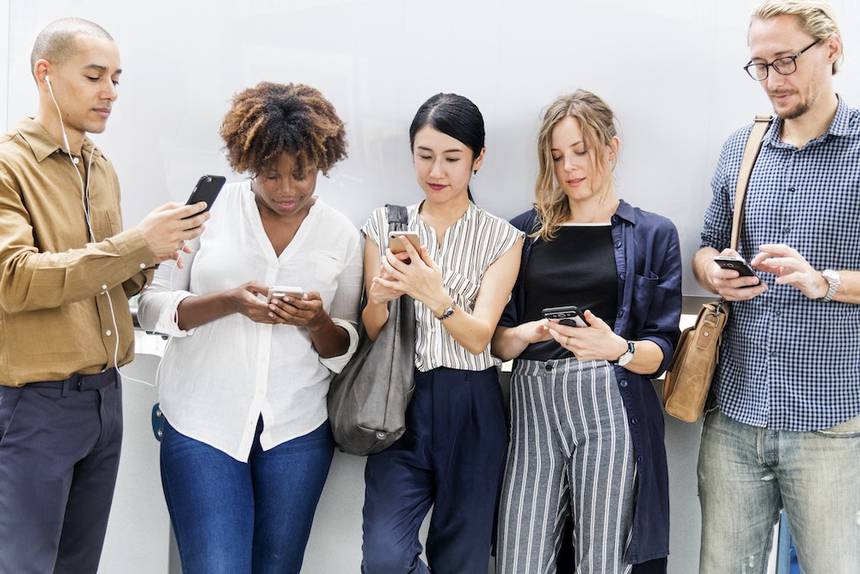And yet, everyone does it.
As I was leaving the gym last week, I greeted a friend who was coming in. He responded without looking up from his phone. I stood there for a few awkward seconds, hoping for eye contact and a further interaction. He finally looked up briefly, apologetically, before returning to the screen. I walked on, feeling shaken by the whole interaction.
It turns out I had been ‘phubbed,’ which is the funny-sounding official term for snubbing someone in favor of a phone. This effect has been studied in recent years and research has found that phubbing does have a very real negative impact on personal relationships, eroding the quality of communication and level of satisfaction.
Interestingly, it was something I’d been thinking about prior to that exchange, although I didn’t know there was an official term for it. Recently I’ve noticed that it’s impossible to go out with friends and have their attention for the whole time. There are always phones on the table, and they’re constantly being checked. I am guilty of this too. When the slightest lull in conversation arises, or if someone gets up from the table briefly, people grab their phones to check in with the rest of the world, to see what else is going on that might be more exciting or stimulating than one’s immediate surroundings.
And yet, so little thought is given to how that makes other people feel. As a group we might comment on pictures or stories that other people have just posted on Instagram, but in reality I think it’s incredibly painful for people to feel like they don’t matter as much as a social media feed.
It used to be that going out together was confidence-boosting – solid reassurance that another person enjoyed your company, otherwise they wouldn’t accept – but not now. Now, you’re constantly vying for attention, competing with a portable supercomputer that’s far more stimulating and entertaining than you’ll ever be. When someone is looking at their phone, you’re never sure if they actually want to be with you.
Emily Esfahani Smith gives an interesting explanation in an article for the Atlantic, where she talks about people making ‘bids’ for connection with each other. A 1986 study of this dynamic used the example of a bird-watching husband pointing out a goldfinch to his wife, in hopes of her acknowledging it.
“He’s not just commenting on the bird here: he’s requesting a response from his wife — a sign of interest or support — hoping they’ll connect, however momentarily, over the bird.” The wife has a choice. She can either respond by ‘turning toward’ or ‘turning away’ from her husband, and her choice would reveal much about the health of their relationship. Smith wrote,
“People who turned toward their partners in the study responded by engaging the bidder, showing interest and support in the bid. Those who didn’t — those who turned away — would not respond or respond minimally and continue doing whatever they were doing, like watching TV or reading the paper. Sometimes they would respond with overt hostility, saying something like, ‘Stop interrupting me, I’m reading.'”
Not surprisingly, the couples who responded positively to the bids were far more likely to stay together long-term. And when you think about it, friendships are no different.
The modern-day equivalent of this is scrolling and texting. Although I didn’t realize it at the time, I was making a bid for connection with the friend, who promptly crushed it by refusing to put away his device and made me feel awful.
I don’t want to be that person. I don’t want my actions to make anyone feel the way I did that day. Chances are I already have, but from now on I am going to make a point of not letting digital distractions erode the relationships that I hold so dear. It’s not worth it. Nothing on that screen is ever more important than the person who’s standing right in front of me.
